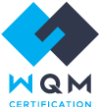Halal certification is a means by which a respected, competent and impartial body audits the production in question, confirms that production is carried out in accordance with halal standards, and accordingly gives an approved document. Along with the condition of being halal in food, health compliance and purity must also be the conditions.
With halal certification, it is ensured that acceptable food and consumable products are produced for the Muslim consumer. This includes the 1.5 billion Muslims and other millions of people in the world who prefer halal food.
According to TS OIC / SMIIC 1 standard, Halal Certification covering the product and control of the production processes of the product, includes production of a wide range of food such as meat, chicken, fish products, additives, spices, also it includes serving places such as restaurants, pastry shops, cafeterias.
Requirements for Halal Certification;
- All processes of the product, starting from the raw material to the final product stage, comply with the Islamic criteria and humanitarian requirements in terms of origin, supply method and means, as well as supply source of all substances and additives present in the product composition,
- Good manufacturing practices (GMP), good hygiene practices (GHP) and HACCP requirements must be provided,
- Both the production stages of the product, and all components takes place in the product composition, as well as the possible effects ,which can occur when each component of the product composition gathers in the product, must carry the appropriate qualifications for the Islamic criteria, in terms of humanitarian requirements, health and cleanliness requirements, nutritional requirements.
What are the Benefits of HALAL Certificate?
- Halal Certification provides an impartial expert service that audits products, additives, preparation and processing methods, cleaning and health conditions in strict safety rules,
- Provides an audit executed by the key personnel who is suitable for HACCP, ISO and other quality and safety standards, who can quickly follow the adaptations to new additives and new technologies and who has halal training,
- Ensures that the product and the manufacturer are recognized and promoted within Global Islam.
